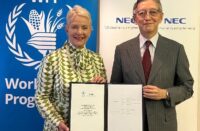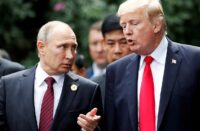- To Check Short-Term Vulnerabilities
 By Peter OBIORA InvestAdvocate
By Peter OBIORA InvestAdvocate
Lagos (INVESTADVOCATE)-The international monetary fund (IMF) Wednesday said Ghana’s economy slowed down and growth rate is estimated to drop to 5½ percent—well below the levels of recent years.
The IMF said the slow in growth of Ghana’s economy is as a result of sizable external and fiscal imbalances and energy disruptions in the first half of the year and therefore advised the government of the country to check short-term vulnerabilities.
This is coming on the heels of the IMF led Christina Daseking mission to the country to conduct discussions for the 2014 Article IV consultation of the west African country.
According to Daseking, the weakening growth momentum and inflationary pressures are expected to continue into 2014, calling for urgent measures to address macroeconomic imbalances. ‘’In the absence of further measures, the mission sees the fiscal deficit target of 8.5 percent of GDP at risk. This, combined with a weak outlook for gold prices, would also keep the current account deficit at high levels,’’ she said.
The Fund said additional fiscal savings are required to address short-term vulnerabilities, contain rising public debt levels, and reduce interest rates. ‘’This will be essential to stabilize the economy and support private sector development, growth, and employment creation over the medium term,’’ the IMF mission affirmed.
The IMF said consequent weakening of the cedi together with large administered price increases contributed to inflation rising above the end-year target range to 13.5 percent.
The mission further affirmed that structural reforms to ensure lasting expenditure discipline are key to sustainable fiscal consolidation of Ghana and advocated a thorough review of the tax regime to phase out exemptions and expand the base.
“In discussions with the Bank of Ghana, the mission welcomed the tightening of the monetary policy stance to defend the inflation target. With regard to the new foreign exchange regulations, the mission agreed with the Bank of Ghana that these measures alone will not resolve the underlying pressures in the foreign exchange market. It recommended a review of the measures after an appropriate evaluation period to assess their effectiveness and mitigate any unintended consequences,’’ the IMF said.






